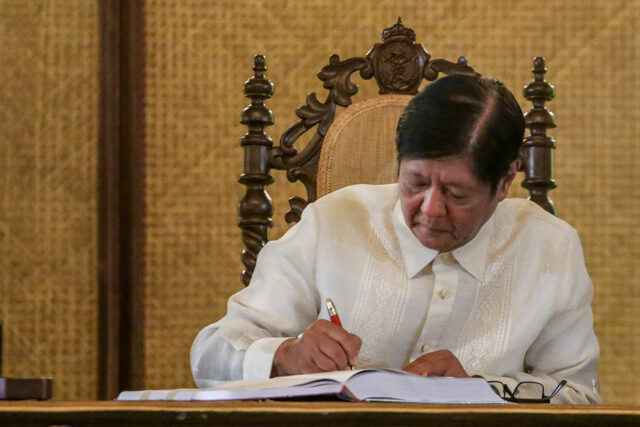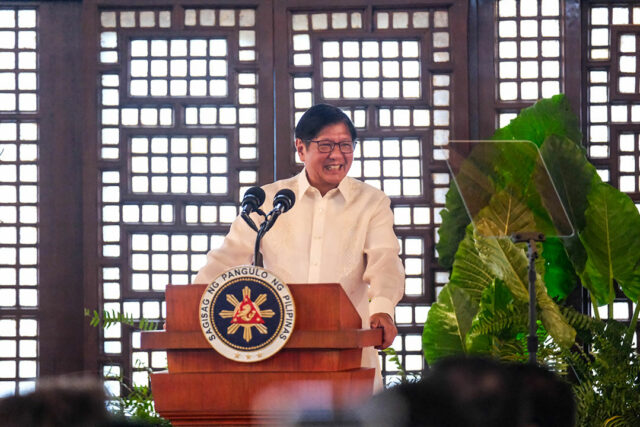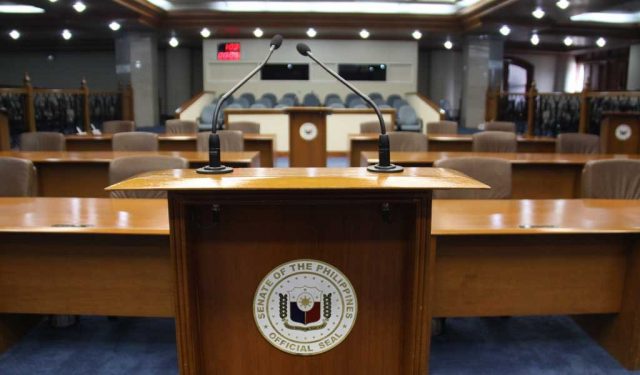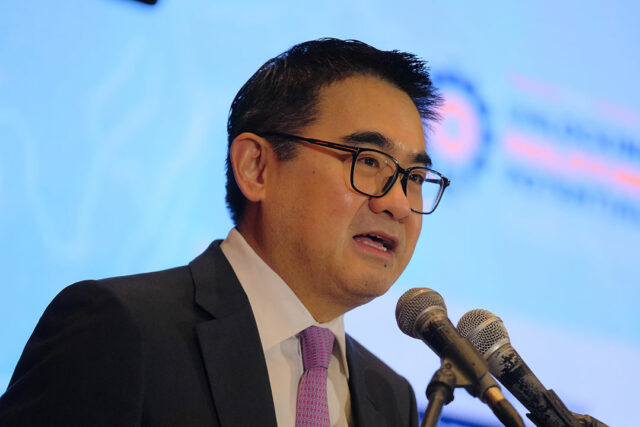By Luisa Maria Jacinta C. Jocson, Senior Reporter
THE GOVERNMENT has designated as priority measures bills on right-of-way (RoW), extended investor leases, and the mining fiscal regime, according to Secretary Frederick D. Go, the Special Assistant to the President for Investment and Economic Affairs.
 “What are the future priorities of this administration, at least those that fall under my space? One is the right-of-way bill,” Mr. Go said in his keynote address at the BusinessWorld Economic Forum on Thursday.
“What are the future priorities of this administration, at least those that fall under my space? One is the right-of-way bill,” Mr. Go said in his keynote address at the BusinessWorld Economic Forum on Thursday.
He said infrastructure projects are often delayed because of right-of-way issues.
“Thankfully, the Transportation Secretary is now prioritizing the acquisition of right-of-way before starting the projects. I think that’s really the right sequence, the right way to undertake an infrastructure project.”
The proposed Accelerated and Reformed Right-of-Way (ARROW) Act is currently awaiting second reading at the Senate.
It seeks to amend Republic Act No. 10752 or the Right-of-Way Act to “facilitate the easier acquisition of right-of-way sites or locations for private infrastructure projects for public use to ensure a more efficient delivery of public services,” according to the bill.
“We have assurances from the legislature that the right-of-way bill is a priority bill and it will be passed in this 19th Congress,” Mr. Go added.
“It’s a very important bill for us to really push infrastructure projects forward. Infrastructure is not just roads, not just rails. It also includes necessary infrastructure like power, water, etc.”
The government is planning to allocate 5-6% of gross domestic product (GDP) to infrastructure spending.
President Ferdinand R. Marcos, Jr. has said that right-of-way issues have hindered flagship infrastructure projects.
There are currently 212 flagship projects on the list worth P9.8 trillion, according to Mr. Go.
Last year, the government completed seven flagship infrastructure projects. It is targeting the completion of 13 such projects this year and another four by 2026.
Mr. Go said the proposed amendments to the Investors’ Lease Act are also priorities.
“For some reason in the private sector…every time you sign a lease contract with the government, it’s usually 25 years. If you’re lucky, it’s renewable for another 25.”
“I’ve been puzzled why people just stop at 25 years. Our Senate is now looking at the Investors’ Lease law that extends this to 99 years,” he added.
In December, the House of Representatives and Senate approved separate bills allowing foreigners to lease land up to 99 years from 75 years. Both bills allow foreign investors to sublet properties, unless barred by contract.
The 1987 Constitution does not allow foreigners to own land, but the 31-year-old Investors’ Lease Act allows foreign investors to lease private land for 50 years, renewable for another 25 years.
Mr. Go said the amendments would allow the Philippines to “benchmark with the best practices in the world.”
“If you go to Hong Kong and Singapore, you lease land for 99 years,” he said. “If you want big investments, you want big infrastructure projects to be built, you cannot give them a 25-year lease.”
“An Investors’ Lease Act that provides investors with nearly a century of lease period (makes the Philippines) globally competitive, or at least regionally competitive,” he added.
The bill rationalizing the mining fiscal regime is also a legislative priority, Mr. Go said.
“The laws that govern the mining industry are decades old. The mining stakeholders, the Chamber of Mines of the Philippines, are all looking forward to this bill because it again brings back predictability in the rules and regulations governing the mining industry.”
“This is why we have set the Mining Fiscal Regime Bill as a priority bill.”
In February, the Senate approved on third and final reading a bill that sets a five-tier margin-based royalty and windfall profit tax system for the mining sector.
Regarding the US tariffs, Mr. Go said negotiations with the US Office of the Trade Representative (USTR) have been positive.
“What I can tell you is that the meeting went very well. The reactions were that our meeting was very well-received, and the discussions were very comprehensive,” he said.
The technical working group of the foreign trade office at the Department of Trade and Industry (DTI) will continue discussions with their counterparts at the USTR, he said.
Mr. Go said the negotiating team signed a confidentiality agreement and cannot disclose specific details of the negotiations.
“But I just want to point out that the Philippines is in a really good space. As you saw, the reciprocal tariffs set for the Philippines were at 17% and this is actually the second best in our region… which puts us in a very good spot.”
“You can ask businessmen who do business with our Southeast Asian neighbors. They have been getting calls from companies based in these countries asking if they can expand, open or build new factories, new facilities in the Philippines because of this.”
He said the government is working to get the best possible deal with the US.
“We cannot rest as all these countries are also negotiating with the US to reduce their tariffs which is why we had to go and keep ourselves on our toes so that if anything changes in their tariffs, we have to ensure ours also get lowered,” he added.













